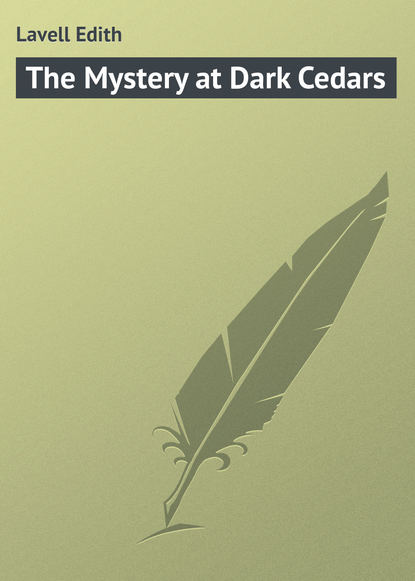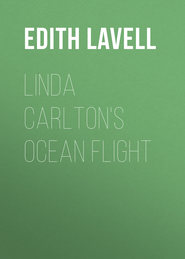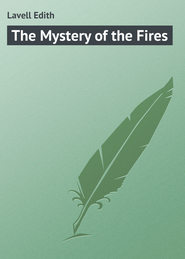По всем вопросам обращайтесь на: info@litportal.ru
(©) 2003-2024.
✖
The Mystery at Dark Cedars
Автор
Год написания книги
2017
Настройки чтения
Размер шрифта
Высота строк
Поля
“Is Hannah still here?” inquired Jane. “Or do we cook our own supper?”
“Yes, she’s here,” answered Elsie. “She expects to come every day to work in the house, and William will take care of the garden and the chickens and milk the cow just the same. But they’re going away every night after supper.”
Max, overhearing the last remark, looked disapproving.
“You don’t mean to tell me you three girls will be here alone every night?” he demanded. “You’re at least half a mile from the nearest house.”
“Oh, don’t worry, Max, we’ll be all right,” returned Mary Louise lightly. “There’s a family of colored people who live in a shack down in the valley behind the house. We can call on them if it is necessary.”
“Speaking of them,” remarked Elsie, “reminds me that William says half a dozen chickens must have been stolen last night. At least, they’re missing, and of course he blames Abraham Lincoln Jones. But I don’t believe it. Mr. Jones is a deacon in the Riverside Colored Church, and his wife is the kindest woman. I often stop in to see her, and she gives me gingerbread.”
Mary Louise and Jane exchanged significant looks. Perhaps this colored family was the explanation of the mysterious disturbances about Dark Cedars.
Mary Louise suggested this to Elsie after Max had driven away with a promise to call for the girls at nine o’clock the following morning.
“I don’t think so,” said Elsie. “But of course it’s possible.”
“Let’s walk over to see this family after supper,” put in Jane. “We might learn a lot.”
“All right,” agreed Elsie, “if a storm doesn’t come up to stop us… Now, come on upstairs and unpack. What room are you going to sleep in – Hannah’s or Aunt Mattie’s – or up in the attic with me?”
“We have to sleep in your aunt Mattie’s bedroom,” replied Mary Louise. “I promised we would.”
Elsie looked disappointed.
“You’ll be so far away from me!” she exclaimed.
“Why don’t you sleep on the second floor too?” inquired Jane.
“There isn’t any room that’s furnished as a bedroom, except Hannah’s, and I think she still has her things in that. Besides, Aunt Mattie wouldn’t like it.”
“Oh, well, we’ll leave our door open,” promised Jane.
“No, we can’t do that either,” asserted Mary Louise. “Miss Grant told me to close it.”
“Good gracious!” exclaimed her chum. “What next?”
“Supper’s ready!” called Hannah from the kitchen.
“So that’s next,” laughed Mary Louise. “Well, we’ll unpack after supper. I’m not very hungry – I had lunch so late – but I guess I can eat.”
Hannah came into the dining room and sat down in a chair beside the window while the girls ate their supper, so that she might hear the news of her mistress. Mary Louise told everything – the capture of the bills, the part Harry Grant played in the affair, and Corinne Pearson’s guilt in the actual stealing. She went on to describe Miss Grant’s collapse and removal to the Riverside Hospital, concluding with her request that the two girls stay with Elsie while she was away.
“So she still thinks I stole her gold pieces!” cried the orphan miserably.
“I’m afraid she does, Elsie,” admitted Mary Louise. “But there’s something else she’s worrying about. What could Miss Grant possibly own, Hannah, that she’s afraid of losing?”
“I don’t know for sure,” replied the servant. “But I’ll tell you what I think – if you won’t laugh at me.”
“Of course we won’t, Hannah,” promised Jane.
“Well, there was something years ago that old Mr. Grant got hold of – something valuable – that I made out didn’t belong to him. I don’t know what it was – never did know – but I’d hear Mrs. Grant – that was Miss Mattie’s mother, you understand – tryin’ to get him to give it back. ‘It can’t do us no good,’ she’d say – or words like them. And he’d always tell her that he meant to keep it for a while; if they lost everything else, this possession would keep ’em out of the poorhouse for a spell. Mrs. Grant kept askin’ him whereabouts it was hidden, and he just laughed at her. I believe she died without ever findin’ out…
“Well, whatever it was, Mr. Grant must have give it to Miss Mattie when he died, and she kept it hid somewheres in this house. No ordinary place, or I’d have found it in house-cleanin’. You can’t houseclean for forty years, twicet a year, without knowin’ ’bout everything in a house… But I never seen nuthin’ valuable outside that safe of her’n.
“So what I think is,” continued Hannah, keeping her eyes fixed on Mary Louise, “that Mrs. Grant can’t rest in her grave till that thing is give back to whoever it belongs to. I believe her spirit visits this house at night, lookin’ for it, and turnin’ things upside down to find it. That’s why nuthin’ ain’t never stolen. So anybody that lives here ain’t goin’ have no peace at nights till she finds it.”
Hannah stopped talking, and, as Jane had promised, nobody laughed. As a matter of fact, nobody felt like laughing. The woman’s belief in her explanation was too sincere to be derided. The girls sat perfectly still, forgetting even to eat, thinking solemnly of what she had told them.
“We’ll have to find out what the thing is,” announced Mary Louise finally, “if we expect to make any headway. I wish I could go see Miss Mattie at the hospital tomorrow.”
“Well, you can’t,” said Jane firmly. “You’re going to that picnic. We can ask the gypsies when we have our fortunes told.”
“Gypsies!” exclaimed Hannah scornfully. “Gypsies ain’t no good! They used to camp around here till they drove Miss Mattie wild and she got the police after ’em. Don’t have nuthin’ to do with gypsies!”
“We’re just going to have our fortunes told,” explained Jane. “We don’t expect to invite them to our houses.”
“Well, don’t!” was the servant’s warning as she left the room.
When the girls had finished their supper they went upstairs to Miss Grant’s bedroom and unpacked their suitcases. But they were too tired to walk down the hill to call upon Abraham Lincoln Jones. If he wanted to steal chickens tonight, he was welcome to, as far as they were concerned.
Hannah and William left about eight o’clock, locking the kitchen door behind them, and the girls stayed out on the front porch until ten, talking and singing to Jane’s ukulele. The threatening storm had not arrived when they finally went to bed.
It was so still, so hot outdoors that not even a branch moved in the darkness. The very silence was oppressive; Jane was sure that she wouldn’t be able to go to sleep when she got into Miss Mattie’s wooden bed with its ugly carving on the headboard. But, in spite of the heat, both girls dropped off in less than five minutes.
They were awakened sometime after two by a loud clap of thunder. Branches of the trees close to the house were lashing against the windows, and the rain was pouring in. Mary Louise jumped up to shut the window. As she crawled back into bed she heard footsteps in the hall. Light footsteps, scarcely perceptible above the rain. But someone – something – was stealthily approaching their door!
Her instinct was to reach for the electric-light button when she remembered that Miss Grant used only oil lamps. Trembling, she groped in the darkness for her flashlight, on the chair beside her. But before she found it the handle rattled on the door, and it opened – slowly and quietly.
There, dimly perceptible in the blackness of the hall, stood a figure – all in white!
CHAPTER XI
The Picnic
The figure in white remained motionless in the doorway of Miss Grant’s room. Mary Louise continued to sit rigid in the bed, while Jane, who was still lying down, clutched her chum’s arm with a grip that actually hurt.
For a full minute there was no sound in the room. Then a flash of lightning revealed the cause of the girls’ terror.
Mary Louise burst out laughing.
“Elsie!” she cried. “You certainly had us scared!”
Jane sat up angrily.
“What’s the idea, sneaking in like a ghost?” she demanded.
The orphan started to sob.










